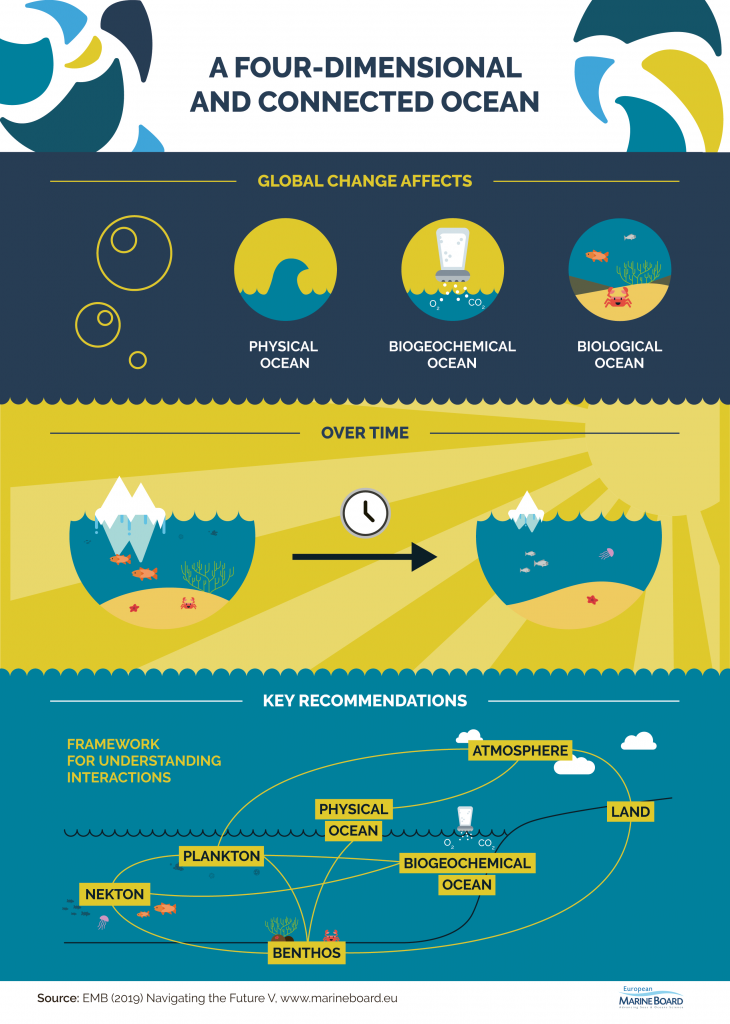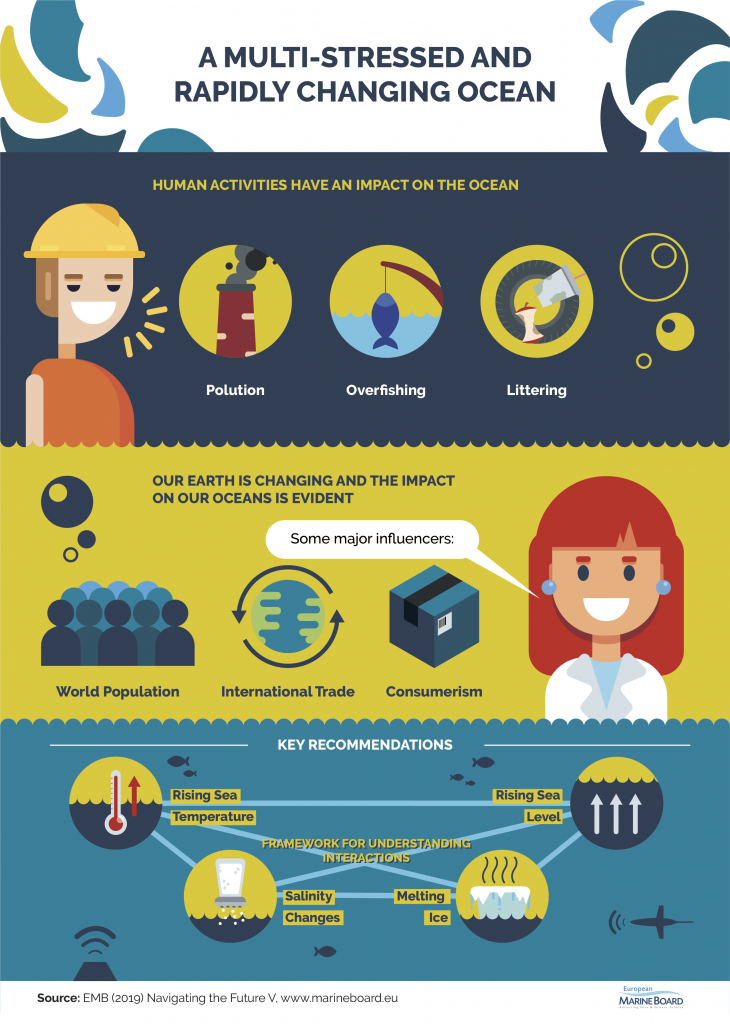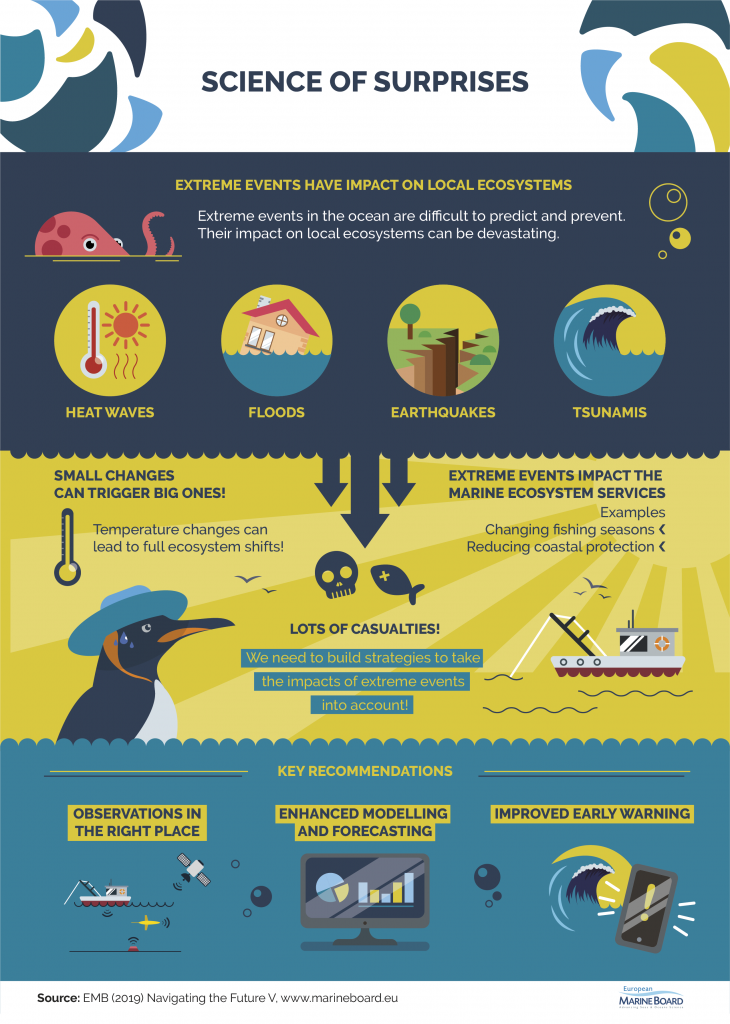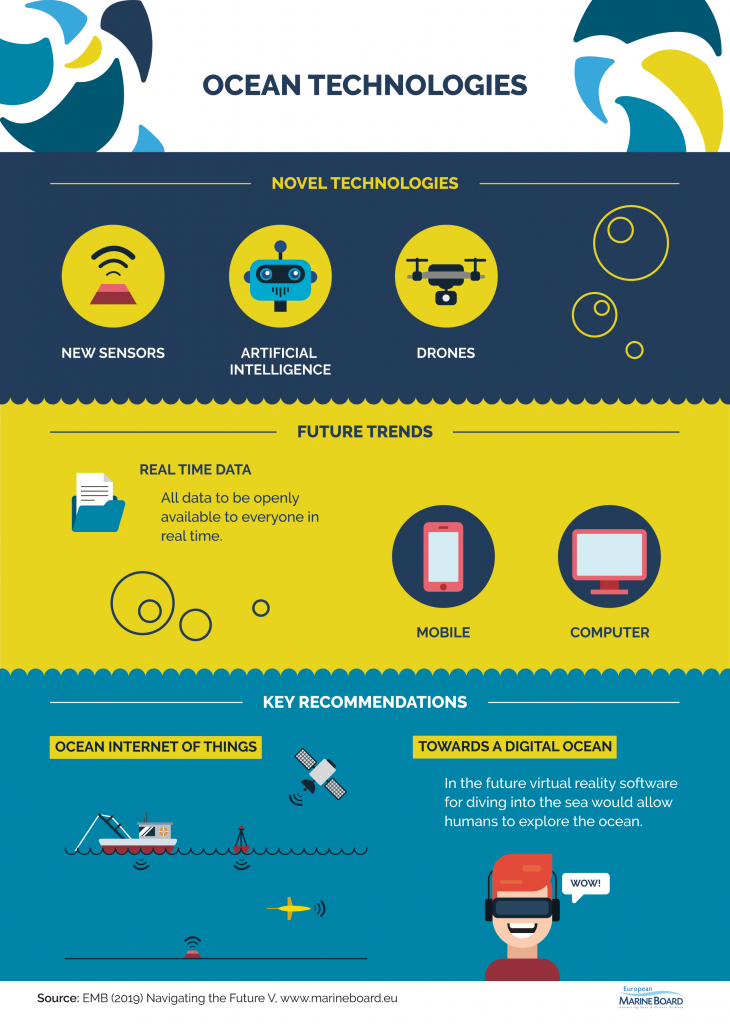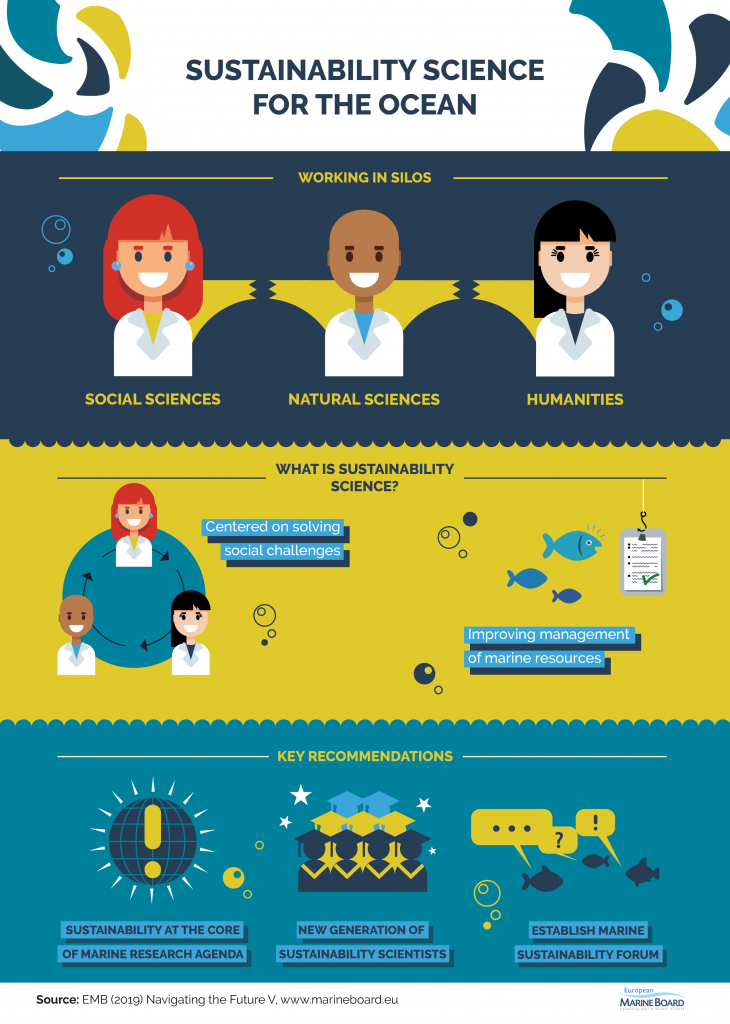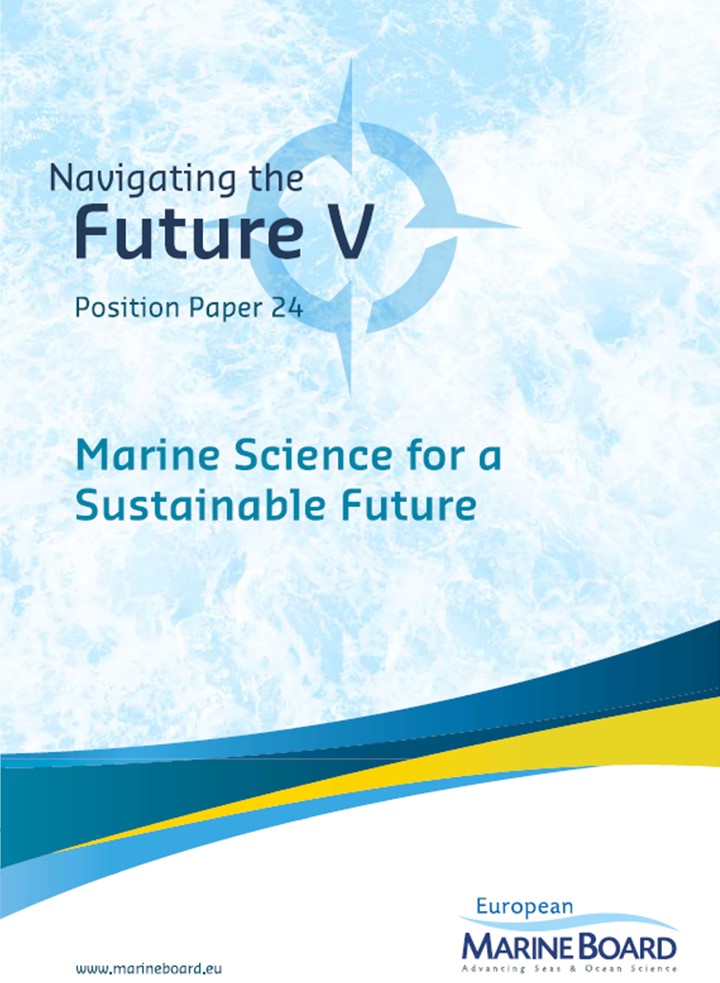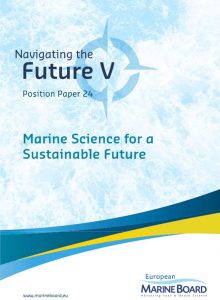 The European Marine Board has recently launched a publication, titled ‘Navigating the Future V’, which will provide European governments with robust, independent scientific advice and expert opinion on future seas and ocean research to 2030 and beyond. To achieve this, leading ocean experts have identified the key areas of marine science where there are still gaps in knowledge.
The European Marine Board has recently launched a publication, titled ‘Navigating the Future V’, which will provide European governments with robust, independent scientific advice and expert opinion on future seas and ocean research to 2030 and beyond. To achieve this, leading ocean experts have identified the key areas of marine science where there are still gaps in knowledge.
The European Marine Board (EMB) is a leading European think tank in marine science policy. It is an independent non-governmental advisory network with a membership comprising more than 10,000 marine scientists from the major national marine/oceanographic institutes, research funding agencies and national networks of universities from countries across Europe. The Board provides a platform for its member organizations to develop common priorities, to advance marine research, and to bridge the gap between science and policy to meet future marine science challenges and opportunities.
Navigating the Future V
The knowledge gaps that Navigating the Future V (NFV) advises to prioritise in the research agenda is critical in understanding the four-dimensional ocean, to predict tsunamis and the impact of multiple stressors on biogeochemistry and biology, and to understand the impact of the future blue economy on our marine ecosystems. NFV shows that we need transdisciplinary science and sustainability science to address the management of a holistic four-dimensional ocean. It also highlights the technological advances and modelling needed for a possible future virtual ocean that would enhance public engagement and understanding of the ocean.
NFV proposes the science we need for the forthcoming United Nations Decade for Ocean Science for Sustainable Development (2021-2030), the next European Framework Programme, Horizon Europe, and its Mission on Healthy Oceans, Seas, Coastal and Inland Waters. The report was officially launched on 11 June 2019 in Paris, France, at the EurOCEAN 2019 Conference (High-level science-policy conference co-organised by European Marine Board, the European Commission and the Intergovernmental Oceanographic Commission of UNESCO).
Key Messages
Specifically, the report recommends a solutions-oriented marine research agenda, co-designed with all stakeholders, and with the governance of sustainability at its core. It should address the following key knowledge gaps:
- The four-dimensional ocean (changes in the three-dimensional ocean over space and time) and functional links between the components of the marine system, i.e. physics, chemistry, biology, ecology and humans;
- The impact of multiple stressors (e.g. climate change, pollution, overfishing) on the functioning of marine ecosystems, their interactions, evolution and adaptation over time, and the ecosystem services they provide;
- The characteristics, probability and impacts of climate-related extreme events and geohazards (e.g. marine heat waves, meteotsunamis and submarine earthquakes, landslides, volcanic eruptions and their associated tsunamis) and how these might change under climate change; and
- Ocean technologies, modelling, data and artificial intelligence needed for sustainable ocean observations to understand, predict and manage human impacts on the ocean.
Key actions include the development of a business model ensuring the long-term economic sustainability of ocean observations. We also need to develop a new generation of sustainability scientists and establish a sustainability forum within Europe bringing together all actors including industry and civil society.
The key messages and actions are also explained in a set of infographics (see below).
The report has been a collaborative effort starting in November 2017 with a planning meeting of 19 leading European experts in the field of marine science and related disciplines to decide on the high-level content. Larger collaborative working groups with representatives from 13 European countries then worked to identify knowledge gaps and draft the recommendations of the report.
The Belgian Federal Government is represented in the European Marine Board by the Belgian Science Policy Office (BELSPO). A scientific communicator from RBINS is delegated for communication aspects and membership of the European Marine Board Communications Panel (EMBCP).
